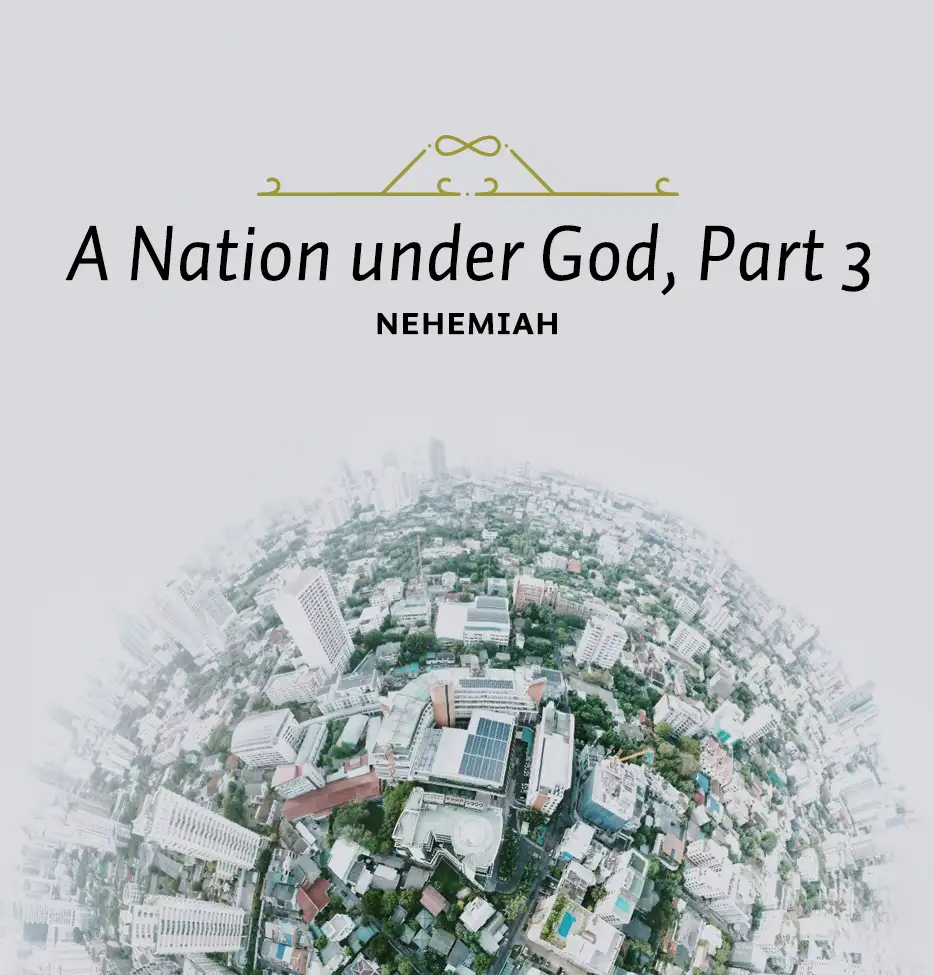Change for the sake of mere change means nothing, of course. What matters is the direction of the change. So, before we examine the specifics of the covenant, it will be helpful to see its characteristics, which indicate where the people saw themselves to be heading. There are three of them. We will look at the first two today and the third tomorrow.
1. The authority of the Bible. Everything in this formal commitment by the people is in response to what they understood to be the demands of the Old Testament law. We see this in the promises made; each is in response to a specific Old Testament demand, most repeated in several settings throughout the Pentateuch. Again, the covenant also begins with two explicit references to the Law, one in verse 28 and one in verse 29. Verse 28 defines the signers of the covenant as those who had “separated themselves from the neighboring peoples for the sake of the Law of God.” Verse 29 tells how these same people bound themselves “with a curse and an oath to follow the Law of God given through Moses the servant of God and to obey carefully all the commands, regulations and decrees of the LORD our God.” This means that the people were responding to the authority of Scripture. There are other kinds of commitment, of course: commitment to a cause, to the demands of legal contract, to a person. But no level of commitment is higher or of greater importance than this, for the simple reason that nothing deserves a higher level of service or obedience from us than God, and God has expressed His will in Scripture.
This is what the so-called battle for the Bible in our day is all about. Some have ridiculed it as a crusade by ignorant, insecure people who think the universe is shaken whenever a detail of the Bible is challenged. But that is not it at all. The issue is whether the Bible is God’s book, rather than man’s, and whether God is going to be acknowledged as the sovereign Lord He is. If God is God, and if God has spoken to us in the Bible, as the Church has always confessed He has, then this book is supreme over us. We must be bound by it, and this means that we must order our lives accordingly.
The impressive thing about the covenant in Nehemiah 9 is that the people were concerned to do this. It showed that they were truly converted and that they wanted to go forward in their spiritual relationships.
2. The importance of the temple. Although the specific promises of verses 30-39 cover a wide spectrum of these ancient Jews’ lives, a surprising portion deals with the temple and the temple worship: the temple tax, the firstfruits of the crops and trees, the regular offerings and the tithe. The construction of the temple had been a first concern of the returning exiles years before. Their slowness in building it had been a burden of the minor prophet Haggai. Continuing provision for the temple concerned Ezra.
We might think that Nehemiah, the civil ruler, would not have been concerned for the temple since his efforts had been so strongly directed to rebuilding the city’s wall. But now we learn differently. We learn that Nehemiah was committed to the temple too. Why? Because he knew that the temple and the worship of God that went on there would alone bind the people into a self-conscious and cohesive nation. As Howard F. Vos says, “The temple . . . provided the religious and social cement to bind members of the community to each other, and preeminently to God and his service.”1 This cohesion would be hard to maintain. At the very end of Nehemiah as well as in the minor prophet Malachi, we find that later generations of Jews quite easily neglected their tithes and allowed the temple services to languish.
1Howard F. Vos, Bible Study Commentary: Ezra, Nehemiah, Esther (Grand Rapids, MI: Zondervan Publishing House, 1987), 125.






